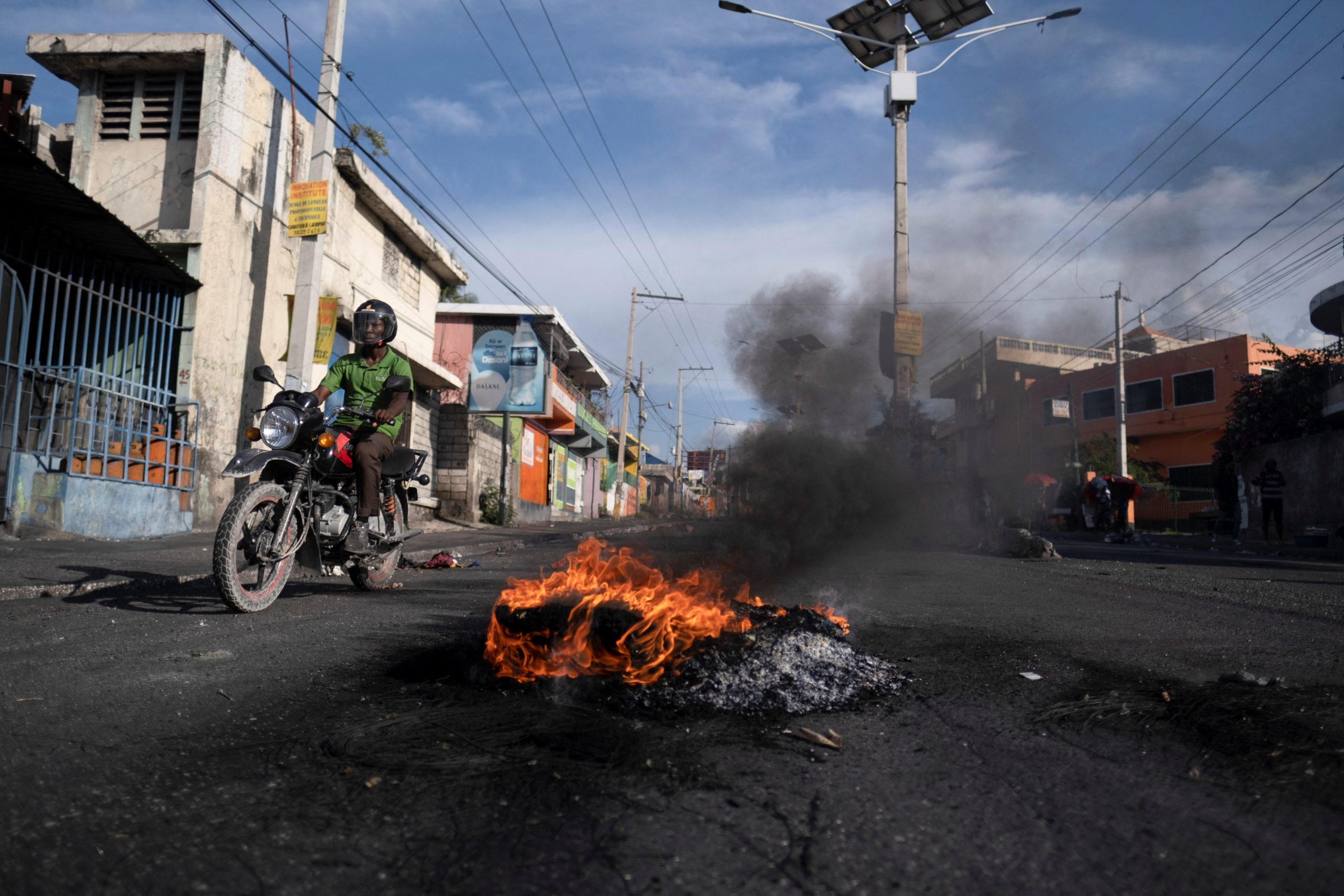
Willie R. Tubbs, FISM News
[elfsight_social_share_buttons id=”1″]
The United States will take steps to help Haiti overcome a gang blockade that is crippling the small nation’s fuel supply, including sending “security assistance” to the small nation that is concurrently facing a cholera outbreak.
Secretary of State Antony Blinken announced Wednesday that the U.S. would increase humanitarian aid to Haiti and seek to strengthen the struggling nation’s security force. Additionally, the United States has deployed a Coast Guard craft to patrol Haitian waters.
“Right now, our staff are on the ground in Haiti, working alongside Haitian health workers and NGOs to respond to the cholera outbreak and deliver care to those who need it,” Blinken said in a statement. “We will accelerate the delivery of additional humanitarian relief to the people of Haiti.”
Assistant Secretary of State for Western Hemisphere Affairs Brian A. Nichols has been sent to Haiti to assess the situation on the ground, which will inform the precise shape of the U.S. response.
“We are also working to increase and deploy, in the coming days, security assistance to the Haitian National Police to strengthen their capacity to counter gangs and re-establish a stable security environment under the rule of law,” Blinken said.
It’s hard to call a cholera outbreak a secondary matter but, given that the nation’s fuel supply has been blockaded by criminal gangs for a month, a reality that is making nearly impossible the task of getting humanitarian assistance to those who need it, the medical emergency is unlikely to improve with any degree of speed until after the fuel crisis ends.
As reported by Reuters, a lack of fuel and incessant civil unrest are combining to exacerbate Haiti’s cholera problem.
Acting Haitian President Ariel Henry has previously requested armed assistance to break the blockade, and it seems the United States will send at least a small number of armed individuals. However, it is unclear the number of people Blinken had in mind when he made his remarks.
The deliberate U.S. response is at least partially attributable to the Biden administration seeking to solve Haiti’s problems in conjunction with the United Nations.
“Building on UN Security Council resolution 2645, we have drafted with our close partner and co-penholder Mexico a resolution proposing specific sanctions measures to enable the international community to address the many challenges facing the people of Haiti,” Blinken said. “We introduced this resolution last week and are negotiating with other UN Security Council members ahead of a vote.”
A senior State Department administrator, speaking anonymously during a Wednesday press teleconference, said there was also a desire to allow Haiti to take the lead.
“I think we are … very focused on ensuring the delivery of vital humanitarian assistance, including the medical support to address the cholera outbreak,” the administrator said. “We are going to be trying to expedite that assistance, including the delivery of fuel. But again, this is something that … really you want to make sure that Assistant Secretary Nichols comes back after having spoken with not just Prime Minister Henry but the private sector, civil society, and other groups that there are ongoing conversations … So this is — this will be, I think, the outcome of a number of conversations that we are working quickly to address a lot of those questions and be responsive.”
There were a few more substantive actions taken by the United States, most notably the creation of a new visa restriction policy that will serve as a sanction for individuals who have participated in the blockade.
“Our intent in imposing these visa restrictions is to demonstrate that there are consequences for those instigating violence and unrest in the country,” Blinken said, “while we continue to support the citizens, organizations, and public servants in Haiti who are committed to generating hope and opportunity for a better future in their nation.”
